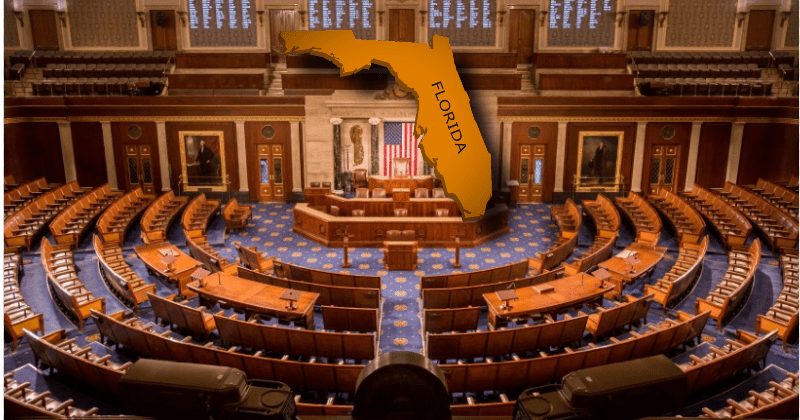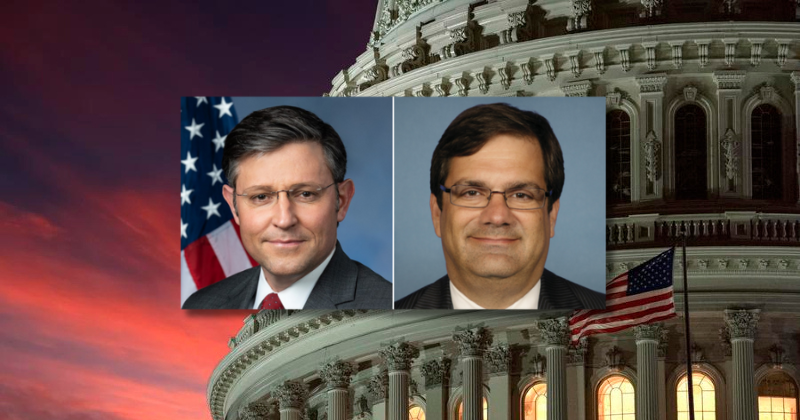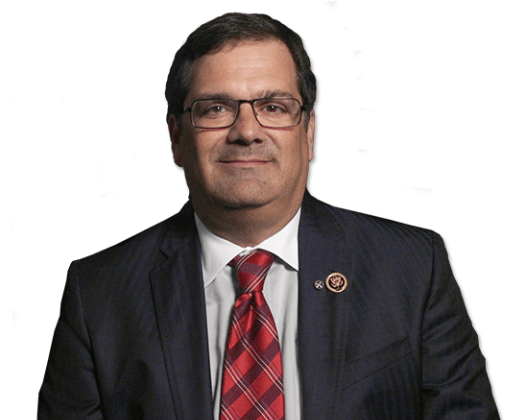Two members of the Florida congressional delegation representing the Tampa Bay area weighed in this week after Facebook announced it was suspending “Instagram Kids”
Facebook announced it would pause its effort.
“We wanted to provide an update on our work to build an Instagram experience for people under the age of 13, often referred to as ‘Instagram Kids.’ We started this project to address an important problem seen across our industry: kids are getting phones younger and younger, misrepresenting their age, and downloading apps that are meant for those 13 or older,” Facebook said in a statement. “We firmly believe that it’s better for parents to have the option to give their children access to a version of Instagram that is designed for them — where parents can supervise and control their experience — than relying on an app’s ability to verify the age of kids who are too young to have an ID.
“While we stand by the need to develop this experience, we’ve decided to pause this project. This will give us time to work with parents, experts, policymakers and regulators, to listen to their concerns, and to demonstrate the value and importance of this project for younger teens online today,” the company added before pushing back against criticism. “Critics of ‘Instagram Kids’ will see this as an acknowledgment that the project is a bad idea. That’s not the case. The reality is that kids are already online, and we believe that developing age-appropriate experiences designed specifically for them is far better for parents than where we are today. We’re not the only company to think so. Our peers recognized these issues and built experiences for kids. YouTube and TikTok have versions of their app for those under 13. Our intention is not for this version to be the same as Instagram today. It was never meant for younger kids, but for tweens (aged 10-12). It will require parental permission to join, it won’t have ads, and it will have age-appropriate content and features. Parents can supervise the time their children spend on the app and oversee who can message them, who can follow them and who they can follow. The list goes on.”
U.S. Rep. Kathy Castor, D-Fla., responded and called Instagram dangerous for children.
“Instagram harms the mental health of children. Zuckerberg and Facebook executives know this. Their own research confirms it,” Castor insisted. “I’ve urged them not to target kids and to end any effort to profit off children.”
Back in April, Castor pushed for answers from Facebook CEO Mark Zuckerberg regarding Facebook’s recent announcement that the company is “exploring” plans to develop a version of Instagram for children.
Castor joined U.S. Sens. Richard Blumenthal, D-Conn., and Ed Markey, D-Mass., and U.S. Rep. Lori Trahan, D-Mass., in writing Zuckerberg on the matter.
The Florida congresswoman also called for Congress to pass her “Protecting the Information of our Vulnerable Children and Youth Act (Kids PRIVCY Act)” which she brought out for the first time at the start of last year. The bill reforms the “Children’s Online Privacy Protection Act (COPPA)” including requiting opt-in consent for Americans under the age of 18. The proposal also creates a new group of “young consumers” between the ages of 13-17 to let families “control who collects their personal information and what companies can do with it.”
Castor brought back a new version of the proposal over the summer.
“Online and digital technology, tracking and data gathering have outpaced current privacy protections for children and consumers,” said Castor. “Companies shouldn’t be allowed to unreasonably track and target children. Many companies have been violating the minimal privacy protections in place today as devices and applications have become more sophisticated in targeting kids. The 117th version of the Kids PRIVCY Act builds on COPPA’s strengths, expands privacy protections for children and teenagers, and incorporates key elements of the UK’s Age-Appropriate Design Code. It’s time to strengthen online protections for our youngest neighbors and bring these safeguards into the 21st century.”
Under Castor’s proposal, the opt-in cause forces companies to “obtain specific, informed, and unambiguous opt-in consent before collecting, retaining, selling, sharing, or using a young consumer or child’s personal information.” The bill would also ban companies to target children with online ads based on tracking their behavior and actions. Castor’s proposal also offers younger Americans the ability to access, correct and remove personal information and stops companies targeting information on children “explicitly covered to include physical characteristics, biometric information, health information, education information, contents of messages and calls, browsing and search history, geolocation information, and latent audio or visual recordings.” The proposal would force companies to offer more transparency on privacy policies and limit what they can share with third parties without consent.
U.S. Rep. Gus Bilirakis, R-Fla., also weighed in on Facebook’s decision.
“The Big Tech industry was on board with knowingly hurting our children until they were caught red-handed by a whistleblower. It is clear we cannot trust Big Tech to do the right thing. Here is a timeline of events: When Facebook CEO Mark Zuckerberg appeared before our committee this March, I expressed my serious concerns about his ill-conceived plans to create an Instagram platform for users under the age of 13. Armed with survey data from constituents, I let Zuckerberg know that parents and citizens in our district did not trust the industry to get it right when it came to protecting kids online,” said Bilirakis.
Bilirakis noted that he and Republicans on the U.S. House Energy and Commerce (E&C) Committee, on which Castor also sits, wrote Facebook on the matter.
“My Republican E&C colleagues and I also spearheaded an oversight letter requesting internal studies about the platform’s research on the impact of its products on kids’ mental health. When whistleblowers revealed internal studies showing the company knew its products were dangerous for teens and failed to do anything about it, I once again made it clear in recent hearings and markups that this deceitful behavior is unacceptable and will not be tolerated. As a result of this relentless pressure, the company is now voluntarily agreeing to stop development of its new Instagram for Kids platform. Despite this, we know that Big Tech is not an effective self-regulator which is why we must take action to ensure social media companies do the right thing,” said Bilirakis.
Over the summer, Bilirakis teamed up with U.S. Rep. John Curtis, R-Utah, to send a letter to the leadership of Facebook, YouTube and Snap, which runs Snapchat, calling on them to do more to ensure children are not on that social media site.
“Big Tech is falling short when it comes to protecting Americans, especially children,” Bilirakis’ office insisted. “The Communications Decency Act was meant to protect our society, specifically our kids. However, Big Tech has been picking and choosing which parts of the law to follow, which is dangerous and inappropriate. Facebook, for example, is completely ignoring the fact that an estimated half of American children under the age of 13 are using its platform which is a clear violation of the social media giant’s terms of use.”
Bilirakis and Curtis, who both sit on the U.S. House Energy and Commerce Committee, sent out letters on the matter at the end of June.
“The powerful influence your platforms have warrant decisive action that protects against inappropriate content reaching our most impressionable populations, and in particular, children who do not yet have the capacity to understand this content without parental guidance. Even more concerning is data that shows almost the same percentage of surveyed children under thirteen reported being exposed to harmful content on your sites. We acknowledge the challenging task of policing your site for underage or fake accounts, but increased attention must be placed on ensuring underage children are not using these sites and exposed to inappropriate content,” they wrote.
At an Energy and Commerce Committee Mark-Up hearing earlier this week, Bilirakis offered a measure “to better protect the mental health of children and hold Big Tech companies who jeopardize children’s well-being for profit accountable for their egregious behavior.”
“Our country is experiencing an unprecedented mental health crisis, particularly among our children and teens,” Bilirakis said at the hearing. “We’ve seen a disturbing spike in rates of depression, self-harm, and suicide attempts and death among teens, with teen depression in particular rising by more than 60 percent. Emergency department admissions for self-harm and suicide among girls between 10 and 14 tripled between 2009 and 2015. This is in no small part due to the isolation caused by social media. During that same time period, teens who used their electronic devices and mobile phones for over five hours per day were 66 percent more likely to have at least one suicide-related outcome compared to teens who spent an hour a day or less.
“These trends led me to run a survey in my district about Big Tech companies. One of my constituents responded that she has seen ‘countless teens be bullied online or simply not able to process the devastating comparison game that they are forced to deal with on social media.’ Last week the Tampa Bay Times, my local daily newspaper, published an article about Tampa Bay area teens being depressed and anxious, with social media primarily to blame. That article referenced a 2018 study of undergrad students at the University of Pennsylvania showing that limiting showing that limiting social media activity to less than 30 minutes per day led to a significant reduction in depression and loneliness. It also told the story of Tampa area resident Catherine, whose constant comparing herself to others online led to a decline in her mental health and ultimately an emergency room visit from a suicide attempt. These statistics and the results from my study are deeply troubling, and I am increasingly frustrated that social media companies are not doing enough to help,” he added.
The Democrats controlling the committee rejected Bilirakis’ amendment.













